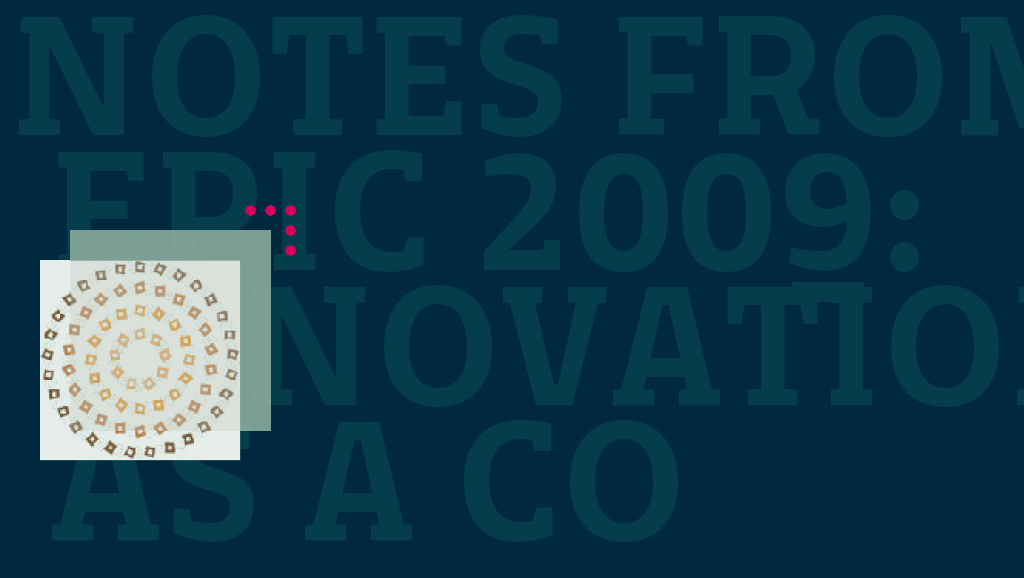In September I went to Chicago for the Ethnographic Praxis in Industry Conference (EPIC 2009). EPIC draws from a mix of different communities, including design, computing, social science, and anthropology as conducted in academic and corporate research settings.
The conference had several excellent presentations — Gillian Tett’s description of her professional odyssey from anthropologist in Tadjikistan to Financial Times columnist, and her description of the mindset of financial community and its role in the economic meltdown was particularly good. One lesson from that talk is that innovations created in isolation — in this case new financial instruments — can be particularly dangerous.
For the Bassetti Foundation, the conference was a place to present from our study of local news, media, and innovation conducted with Yahoo! Research. In the U.S., the newspaper industry has undergone a collapse; more than 25 percent of working journalists have lost their jobs in the last two years, mostly as a result of innovations outside the news business — digital distribution, free classified ads, and free news online have all contributed to publisher’s woes. Yet the desire for news is as strong as ever; our study is an attempt to identify innovations by news readers and opportunities for publishers to either use existing innovations, or create new ones. More on media innovations in future posts.
But back to EPIC. The most striking aspect of the conference was a tacit conception of innovation as a controllable, rational process, or as a purchasable commodity. Innovation was still discussed as a somewhat magical achievement, in some sense the pinnacle of human creativity, but one that is being tamed and rationalized and made available for purchase. Put simply, the idea that dollars could be added to a product or service to make it more innovative, and that innovation was something that one could simply buy, was very much in the air.
If innovation can be purchased, well, it certainly can be sold. As Scott Berkun noted previously, a stated desire for “innovation” in corporate settings is often means a desire for “success” – something consultancies have been packaging for decades. We can only hope that companies and consultancies that attempt to peddle innovation may see “responsibility” as a nice differentiator or added benefit in their offerings.
















